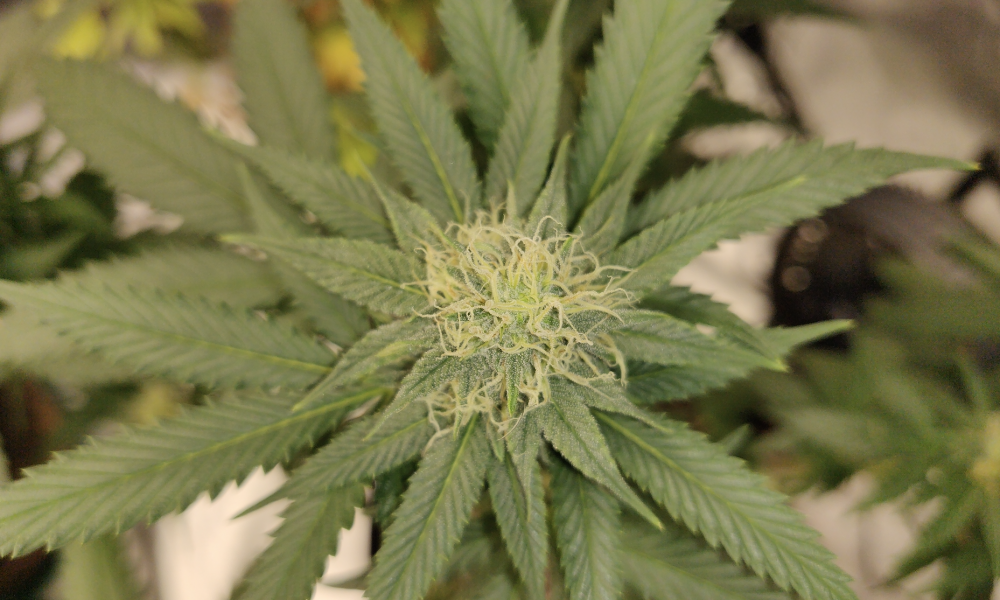The Justice Department has already started issuing pardon certificates for certain marijuana offenses covered under an expanded proclamation that President Joe Biden issued last month.
Chris Goldstein, a cannabis activist who was arrested over possession of marijuana on federal land while protesting for reform in 2014, shared the certification he received from DOJ’s Office of the Pardon Attorney on Tuesday.
Goldstein was among those whose cannabis cases were omitted from Biden’s original mass pardon in October 2022, which only covered statutes related to the general offense of simple cannabis possession under federal or Washington, D.C. law. The president’s newly expanded pardon proclamation issued last month specifically added possession on federal property as an offense eligible for relief.
Breaking personal news:
My official Presidential Pardon Certificate for marijuana possession arrived via email today.Thank you @POTUS! pic.twitter.com/PyX9QZrPEG
— Chris Goldstein (@freedomisgreen) January 23, 2024
Goldstein told Marijuana Moment that when the pardon attorney’s office opened up its initial pardon certificate application in March 2023 following Biden’s first act of clemency, he “applied right away.” But after several months, he began to “wonder about the progress” before seeing the expanded proclamation last month that referenced the specific code that was on his court docket and then re-applying.
“These pardons are a key promise fulfilled by President Biden and they’re part of a critical first step by the White House,” he said. “Hopefully, from here we get to expanded justice reform and prisoners actually getting released.”
The president’s pardon itself is largely symbolic, signaling the administration’s position that low-level marijuana cases should not be prosecuted. A pardon doesn’t expunge records—and people aren’t required to obtain the certification—but it represents an official acknowledgement that the relief has been granted.
“I’m glad that it only took a few weeks to get my certificate once the details were sorted out,” Goldstein said. “I hope that Congress will pass laws to actually expunge records like mine and make the process automatic. Millions of Americans are living with the consequences of prohibition policy. These low-level pardons must be followed by bigger leaps forward.”
In an email to Goldstein, the pardon attorney’s office said the certificate “is proof that you were pardoned under the proclamation.”
“The pardon means that you’re forgiven, but you still have a criminal record. It may:
-
- remove restrictions on your right to vote, hold office, or be part of a jury
- relieve you from penalties for your charge/conviction, including jail time”
People who may be affected by the cannabis clemency action can fill out an application on the office’s website to receive a certificate demonstrating that they have been pardoned.
While the president’s pardons themselves are effective immediately, the certificates are intended to allow people to show that they were granted clemency, which could help avoid obstacles to housing, employment, education and child custody caused by a federal criminal conviction.
Advocates have generally felt encouraged by Biden’s pardon actions, as well as his directive for an administrative review into cannabis scheduling under federal law that is ongoing. But others have pushed the president to do more, pointing out that the pardons haven’t actually released anyone currently incarcerated over federal marijuana offenses, and it falls short of Biden’s pledge to decriminalize cannabis.
In any case, the quick turnaround for pardon certifications after Biden’s expanded action last month indicates that the Justice Department is prioritizing the actualization of clemency.
“Criminal records for marijuana use and possession have imposed needless barriers to employment, housing, and educational opportunities,” Biden said in a statement last month. “Too many lives have been upended because of our failed approach to marijuana. It’s time that we right these wrongs.”
The pardon certification process comes as the Drug Enforcement Administration (DEA) is considering a recommendation from the U.S. Department of Health and Human Services to reschedule cannabis to Schedule III that stemmed from a review that Biden initiated in conjunction with his initial marijuana clemency move.
Importantly heading into this year’s election, a recent survey found that voters’ impression of the president jumped a net 11 points after hearing about the possible implications of the rescheduling review—and that includes an 11-point favorability swing among young voters 18-25 who will be critical to his reelection bid.
DEA, for its part, has made clear that it reserves “final authority” in the cannabis scheduling matter.
In October, advocates and lawmakers who support cannabis reform marked the one-year anniversary of Biden’s first mass marijuana pardon and scheduling directive by calling on him to do more—including by expanding the scope of relief that his pardon had and by expressly supporting federal legalization.
Biden DOJ Tells Federal Court Not To ‘Disrupt’ Marijuana Rescheduling Decision By Allowing Industry Lawsuit To Proceed
Photo courtesy of Mike Latimer.
Read the full article here









